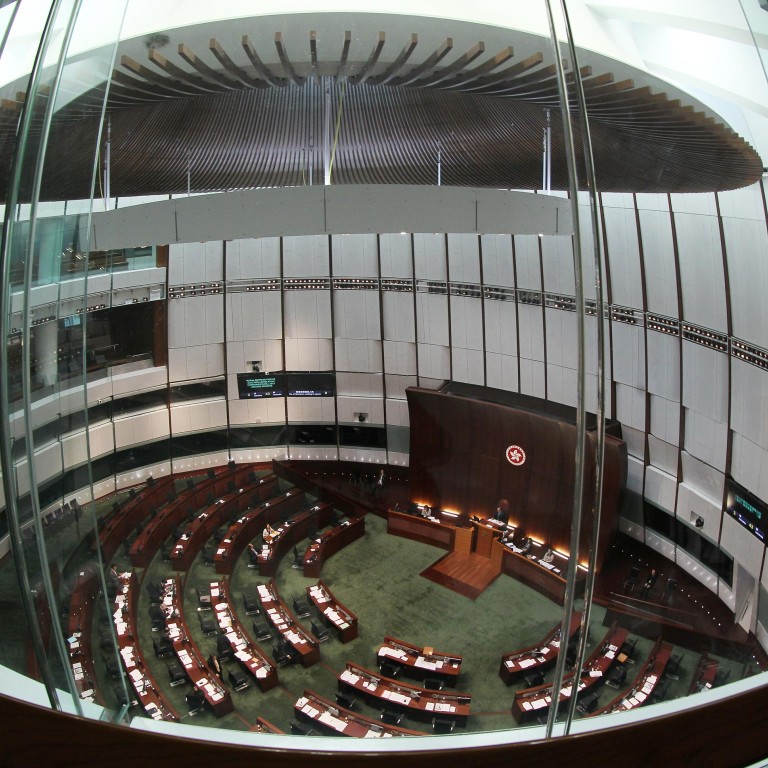
Calling police to break up 'Occupy Legco' would be last resort, council chief says
Lawmakers should find their own way to deal with protesters, says council president; but police help could be sought if scenes turn ugly
Police would be called in the event of activists occupying the Legislative Council chamber only as a last resort, the council's president said yesterday.
Jasper Tsang Yok-sing said lawmakers felt Legco should try to solve its own problems when possible, and suggested the council could meet in an alternative venue were an occupation to occur. But he did not rule out calling police if occupying activists became destructive or violent.
He urged Hong Kong to learn from Taiwan, where students protesting against a trade pact with the mainland have occupied the legislature since Tuesday last week. "For people from all over Taiwan to be mobilised to join a protest, and for many Taiwan citizens to support it, you cannot say that it is simply an impulsive act by a group of youngsters," Tsang told Commercial Radio.
"When social conflicts accumulate, and the government can't really solve them, if public discontent … cannot be expressed in a legal and normal way, it is difficult to avoid such a [protest] from exploding."
Contingency plans on how to deal with a copycat sit-in may be discussed by the 13-member Legco Commission, which Tsang chairs, on April 8.
Earlier this week, Occupy Central and the Federation of Students declined to rule out occupying the Legco chamber if the government failed to deliver on genuine universal suffrage.
Tsang said preventing a lawmaker from attending a meeting, or causing a disturbance that prevents a meeting from proceeding, were both criminal offences.
"Legco has its constitutional responsibilities. If situations happen and the legislature cannot perform its duties in the chamber, we have to consider the alternatives," Tsang said. "We will consider whether we could prevent someone from occupying the chamber, and in the event of an occupation, whether we could operate somewhere else."
Yet he did not rule out calling police if activists began destroying files or endangered lawmakers' personal safety.
Police cannot legally enter the legislature without permission from Legco, noted Tsang. "We should never ask the police to come in unless we have no other choice," he said.
Tsang added that increasing Legco's 90-strong security staff might be a waste of public money, as doing so might be spending on "something that seems unlikely to take place".

